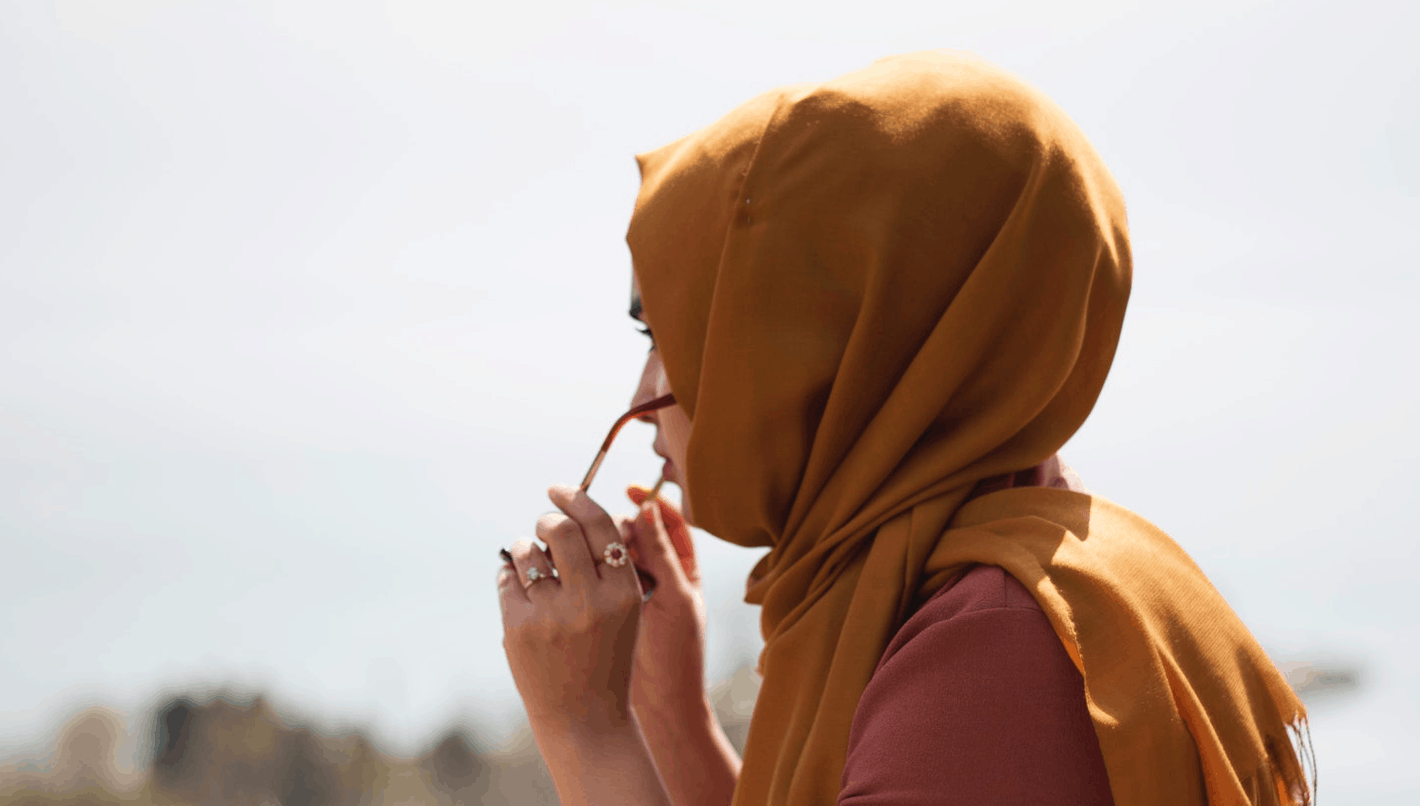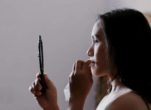
Under My Hijab
Note from the Editor: While we support all women in claiming their truth, this story contains religious themes that don’t necessarily represent Wf1’s values and beliefs.
I have always dreamt of traveling abroad, and finally I am a Fulbright scholar from Egypt in the United States, teaching Arabic at Vassar College in New York.
Some people told me that it would be difficult for a Muslim woman from the Arab world to be in the States. They said I’d have to change my style, but actually, I did not care about this—since I am not trying to assimilate or be an American; I am just working for ten months and going back home.
So, how is it for me? I have to admit that I feel much more unique since I have come to the States; people inspect me curiously, and I totally understand why they’d do that. I’m stylish, after all! I know I look different, and moreover, I am a tall woman.
When I first landed at the airport in New York, I thought that I would be treated badly just because I am a woman with a veil on the head, but nothing like this happened. I was treated like everybody else—no special inspection or anything because of my hijab. Since I arrived in the U.S., I was also welcomed by great people who made me feel as if I belong: the two people at the airport who decided to call the taxi driver for me at the airport and check that I arrived at Vassar safe, the amazing Jamaican taxi driver who gave me the confidence and called me “a queen of Egypt in the States,” and the faculty members who helped a lot before I arrived in the U.S. Then, there were those who welcomed me at their home to celebrate Thanksgiving at a table full of people of different beliefs. I was treated and welcomed very respectfully and very generously in an unprecedented way.
The beginning is always wonderful, but what do you think happened later? It was a good experience, but in a different way. I am very lucky to be at Vassar, which is a liberal art college, meaning you are accepted whatever your choices in life regarding religion, color, sexual orientation, and beliefs since you, too, are respecting all the differences on campus. Moreover, they even provide halal and kosher foods, and all other varieties.
At the beginning of the school year, I discovered that there were only two veiled women on campus: myself and another Moroccan woman working in the Deece (where students eat). Later, another veiled freshman student joined. Being different at that time made me anxious at the beginning, especially because some students would stare at me and not smile, as I am used to do when you stare at someone for whatever reason. Sometimes, when I smiled, they did not smile back. It felt really bad.
But I understood that people are usually afraid of what they do not know, and they would react differently if they knew me. Some people might be afraid, yet curious to know more. Some people working at the Deece started to compliment my style and my hijab. That made me feel supported and confident. Later, some students whom I had the chance to meet and make very short conversations with came by and asked me some questions about the Arab world, Islam, and veiled women.
The questions were really interesting. First of all, I was so happy to be asked about my identity as an Arab and a Muslim woman, which meant that I was noted and I was identified as a human being who existed!
Question 1: Are women who are not wearing hijab perceived as disrespectful?
No. It is believed that hijab is a must in Islam, with a verse in the Quran that says:
“And say to the believing women that they should lower their gaze and guard their modesty; that they should not display their beauty and ornaments except what (must ordinarily) appear thereof; that they should draw veils over their bosoms and not display their beauty except to their husbands, their fathers, their husbands’ fathers, their sons…”(An-Nur 24:31)
However, there is also another verse that says:
“Let there be no compulsion in religion: Truth stands out clear from Error.” (Al-Baqarah 256)
So, whatever choice a woman might make, no one has the right to judge her. Moreover, you will find a lot of young women who choose not to wear hijab yet practice the religion. In Egypt, you will find veiled and unveiled women everywhere.
Question 2: Can I hug you?
No, since you are a man and not my brother, father, my son, my uncle, my nephew, my father-in-law, or my child.
Question 3: So, if you can hug women, can you have a sexual relationship with them?
No, I cannot. I do not feel attracted to women, and this is not accepted in my religion.
Question 4: How many times do you pray a day?
We pray five times a day and we should do ablution, wherein I wash my mouth, nose, face, part of my hair, ears, back of my neck, arms, and feet three times.
Question 6: is there a certain way to dress your hijab?
No, it is just supposed to cover your hair and the bosom.
Question 7: Do women wear hijab because they feel that they are inferior?
No, never. Women in Islam are honored. They have the right to learn, have their jobs, and have their own money. And they are not even obliged to do housework, yet some cultures oppress women regardless of the religion they practice.
Question 8: Can I show my hair or some of my body parts to doctors?
Yes, for medical reasons.
Question 9: What parts of my body can I show?
Only the face, hands, and feet. However, some women choose not to show their face to be more modest.
There are many other questions, and I am always happy to answer. However, I’m not religious enough to know all the answers—but with every question I am asked, I reflect even more on my choices in life and my religion.
I am a normal person who loves to laugh and have fun without drinking alcohol or dancing with a man in a bar. We all have our own ways of experiencing fun.
I am very thankful to every person who smiled at me or smiled back during my time in the U.S. It means a lot!











1 comment to "Under My Hijab"